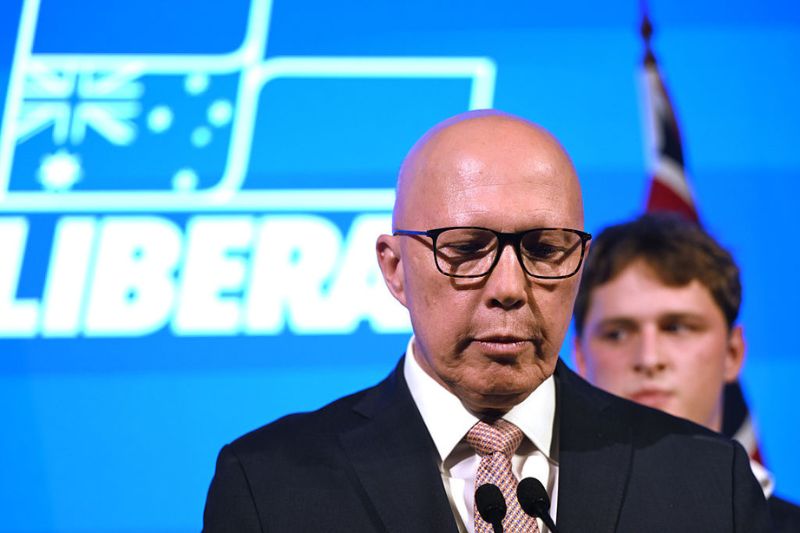It is a truism to say that the Federal Election was full of surprises. Surprises, of course, are now measured scientifically by deviation from the Polls and the Bookmaker’s odds. In the Federal election, however, there were also human surprises. People behaved in ways that we did not expect. I confess that I was surprised when listening to Mr. Peter Dutton’s gracious words about his victor in the Seat when he recognised that he had lost his Seat, and later when acknowledging that his Party had lost the election. My admission is a confession of shame. I had thought Mr. Dutton incapable of such magnanimity and delicacy. My surprise was a failure of the imagination. I had dismissed him as a cardboard cutout and not as an interesting and complex human being.

Mr Dutton’s generosity of spirit was matched by Prime Minister Albanese’s response. Their exchange affirmed that there is more to political life than winning and that human beings matter. This revelation of Mr. Dutton’s humanity, however, was confined to personal relationships. The conduct of politicians in the election campaign suggested that in public affairs, all that matters is winning and that people are expendable, regardless of the effect of the campaign on people in the community.
The range of epithets used in different elections to describe people who sought asylum in Australia are an example: economic migrants, queue jumpers, people of Middle Eastern appearance, baby throwers, illegals, security threats, and criminals are only some. The language used to describe members of minority ethnic groups, people who are homeless and on benefits, Indigenous youth, transgender people and women more generally could be similarly mapped. The effect of such language is to represent them as objects and therefore as objectionable. Its desired effect is to harness prejudice to secure votes. Its actual effect is to inflict suffering on the persons in groups that are targeted.
It must be said that Mr Dutton was one of many politicians who have spoken pejoratively of minority groups and of people who differ from him politically. In his role as Minister for Home Affairs Relations he had consistently denigrated people who sought protection in order to maintain a system that dehumanized and denigrated human beings. In this election campaign, too, he said welcome to country ceremonies were 'overdone', and should be limited to major events, feeding on prejudice against Indigenous Australians.
In discussion of the recent election, this entry into the culture wars, perhaps better described as culture muggings, has been generally criticised as an ill-judged strategy. But its fault is seen as missing its audience, not as damaging the lives of human beings. Public life is a play in which its actors may engage in a different way than they would in domestic circumstances. Truth, respect and justice are dispensable.
'It was gratifying that Australians generally rejected the allure of vilifying one another. We might hope that this makes space for a less polarising form of politics embodied in the respect shown for one another by Mr. Albanese and Mr. Dutton. That would be better for the nation and for politicians.'
In reality, of course, this play acting has consequences that affect people’s lives. When we describe persons who seek asylum as queue jumpers or illegals we no longer see them as persons like ourselves deserving of the same respect but as an impersonal category of things. We can then find justification for imprisoning them, depriving them of the rights that other human beings enjoy, dispatching them like parcels, and separating them from their family. Similarly, when we describe persons who are unable to find work as dole bludgers we dehumanise them and justify depriving them of a living support. In this political play, words are bullets that can tear flesh and draw blood.
It was gratifying that Australians generally rejected the allure of vilifying one another. We might hope that this makes space for a less polarising form of politics embodied in the respect shown for one another by Mr. Albanese and Mr. Dutton. That would be better for the nation and for politicians.
The gap between politicians’ understanding of denigration as a game and the serious harm that this game can bring to the people who are its victims is the stuff of tragedy. It wounds the humanity of those who engage in it and of those who are hurt by it. It also diminishes the contribution that good people who feel forced to wear a scowling mask can make to public life. We should wish Mr. Dutton well as he leaves Parliament. We may also wish for our own sake as well as his that he and others were able in public life to display the generosity and sensitivity with which he left it.
Andrew Hamilton is consulting editor of Eureka Street, and writer at Jesuit Social Services.
Main image: Opposition Leader Peter Dutton concedes defeat during a Liberal Party election night event on May 03, 2025 in Brisbane, Australia. (Photo by Dan Peled/Getty Images)